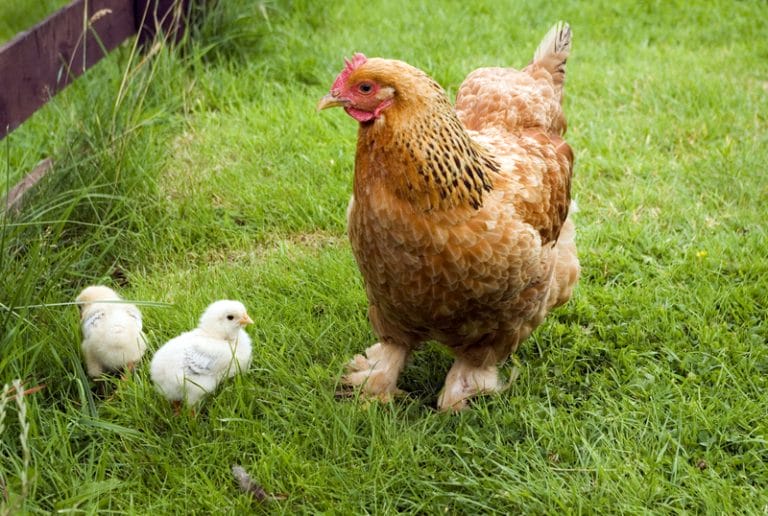This entry was posted on 31 July 2020 in Keeping Chickens.
For most people, chickens are divided into a few camps; fried, roasted or nuggets, but we’re more interested in them pre-dinner. As we become more aware of where our food comes from, how it’s sourced and, more importantly, the way it’s reared, keeping chickens at home, either as pets or a source of eggs and meat is increasingly popular.
If it’s something you’re interested in, we wanted to produce a quick guide for everything you need to know about chickens; what breeds might suit you best and how to look after them to give both of you the best chance of success.
Chickens are generally thought about as a food source, but as pets, chickens are really interesting birds. Not only will they keep you stocked up on eggs, but they have around 24 different vocalisations for specific purposes. Especially useful if you’re interested in learning to speak ‘poultry’.
The first thing to ask yourself if you’re considering owning chickens is what you want them for. Different breeds are better at certain ‘tasks’. For example, if you want them as egg-laying machines, then obviously you should go for a breed that is known for that. Contrary to popular opinion, there aren’t any breeds of chicken that lay eggs every single day. Similarly, if you want them as pets (because you can) then breeds with gentle temperaments who are generally low-maintenance are the ones to go for.
Believe it or not, there are over 90 different breeds of chickens in the UK, so when you come to choosing the right one for your garden, you’ll have a wealth of choices. Breeds like the Rhode Island Red, Leghorn or the Sussex are good if you’re looking for chickens that are more-suited to egg-laying. Also, if you’re looking for more unusual eggs, the Ameraucana lays eggs that come in a variety of colours.
If you’re wanting them more for pets than food, the Ameraucana (again), Buff Orpington or Australorp have docile natures and are easy to handle. The breed that suits you is also going to depend on the space you have available. If you have a large space and will be letting them roam freely, the Plymouth Rock is a good choice.
Once you’ve got your chickens, or at least, just before you get them, you are obviously going to need somewhere for them to live. Finding the right coop and food is just as important as the type of chickens you get.
The size of chicken coop you get is obviously going to be linked to the number of chickens you want. It’s also going to be relevant to the space your garden has and your own personal style. There are some important things to think about when choosing the perfect coop.
Security is going to be an important factor. With the increase in urban foxes, keeping your chickens safe and secure shouldn’t be underestimated. As well as foxes, coops should be ‘rodent’ proof. Rats, in particular, can spread disease within flocks and even steal eggs. The coops should also be well insulated, so they’re warm inside, even in the depths of winter. As important as it is to keep the coops warm, they also need to be ventilated to allow air to circulate in the summer.
To ensure you keep happy chickens, the internals of the coop should include nesting areas so they can lie down to lay their eggs and roosting bars for when they sleep. The bars should be separate to their nesting areas and thick enough so they can grip them comfortably. You’ll need 1 nesting box for every 4 chickens you have.
Chickens kept at home is an increasingly popular way to buy into the green revolution. Not only can you have a ready supply of eggs, chickens can be a fun way to engage with the whole family and for them to understand where food comes from and how we help sustain the environment.
If you would like to find out more about how we can help you get ready for keeping chickens, please give us a call today on 01273 978 487 or head over to our contact page for more information.

« 6 Things To Consider When Buying A Chicken Coop For Your Chickens